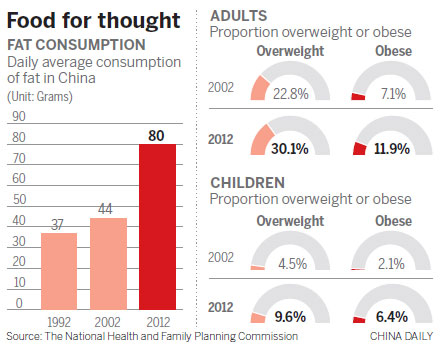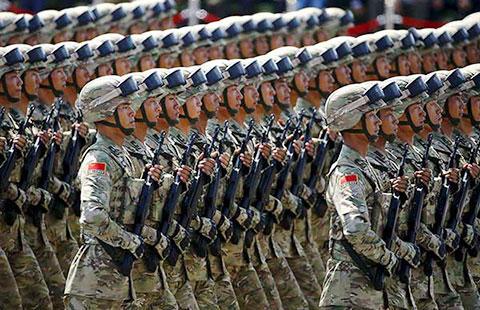Consumers have no beef with meat
By Shan Juan (China Daily) Updated: 2016-01-08 07:56
Demand set to soar
China's meat industry is now preparing for even higher demand in the years to come, especially after changes to the national family planning policy that will allow most couples to have two children rather than one.
This year will see the completion of the world's largest animal cloning facility, in the Northern port city of Tianjin, where beef and dairy cattle will be cloned for food production and also to improve livestock strains.
Xu Xiaochun, chairman of the Boyalife Group in Jiangsu province, the country's only commercial provider of cloned animals, said the Chinese market for cloned beef has huge potential because there has been a shortage for several years.
The rise in the consumption of meat in China echoes findings by statisticians that dietary habits change as a society becomes more prosperous, more specifically, rising prosperity results in increased consumption of protein, primarily from meat.
Max Rubner, an academic and researcher in the US in the early part of the last century, believed that high protein consumption was a sign of civilization and the right of civilized people. Elitism and arrogance dominated much of the burgeoning field of nutrition in the 19th century, and the "lower classes" were considered lazy or inept as a result of not eating enough meat or protein.
Rubner's argument was partially endorsed by T. Colin Campbell, the Jacob Gould Schurman Professor Emeritus of Nutritional Biochemistry at Cornell University. In his bestselling book The China Study, Campbell concluded that a cultural bias had become firmly entrenched: civilized people ate proteins; wealthy people ate meat; and the poor ate staple foods, such as potatoes and bread. "These changing dietary habits are in tandem with the increasing GDP," he said.
However, he also said the concept that bigger is better, more civilized and perhaps even more spiritual, was not only incorrect, but also harmful.
The incidence of heart disease, strokes and certain cancers began to rise with the high-protein diet, particularly animal fats, and China should be fully aware of the situation and take preemptive measures, according to Clarke.
With the increased consumption of meat, usually coupled with the increased intake of refined carbohydrates and high-calorie foods, the mortality rates from infections and malnutrition decreased dramatically, but that good news is offset by the fact that the number of deaths from heart attacks, strokes and cancers began rising, he said.
- Efforts to be stepped up to reduce overcapacity
- Senior Chinese leader urges continued anti-graft efforts
- Xi stresses 'green development' along Yangtze River
- Court museum open free to public
- From pension to GDP: the Government's New Year Resolutions
- Inspection team shifts to high gear, grills Hebei's top leaders
- Public-interest lawsuit plan tested
- Leaders point the way for social change
- Li Keqiang meets British foreign secretary
- Second test flights performed at Nansha Islands







